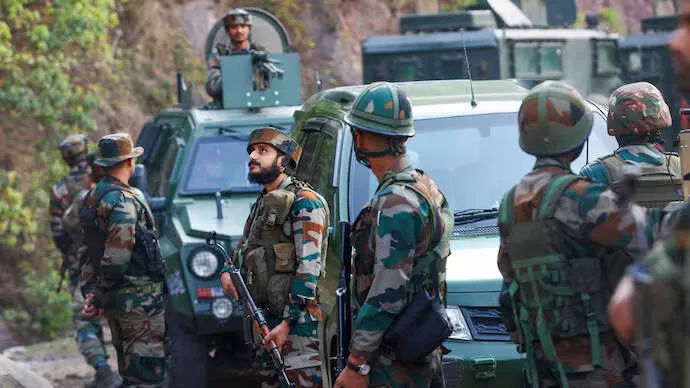

Pakistan has once again proven that it is the international capital of the blunder “burning your own head with your own torch” in supporting terrorism, as seen in the terrorist attack they carried out in Pahalgam, Jammu and Kashmir, three days ago. However, the merciless massacre of 26 tourists, including a Malayali, was an act of brutality unlike anything India had faced before—exposing to the world a vile and deeply sinister communal war tactic that ultimately backfired. By asking the tourists their religion and targeting only those who didn’t have Muslim names, Pakistan aimed to sow seeds of communal division and hatred in India—a nation celebrated for its vibrant spirit of religious harmony. But from the very first day, Pakistan realised that its plan did not succeed, as neither the people of Kashmir nor the patriotic Muslim community there supported such a heinous act. That realisation was Pakistan’s first setback.
The heroic death of Sayyid Adil Hussain Shah, a horseman hailing from Pahalgam, who was shot while trying to snatch the gun from the terrorists, stands as a chapter of glorious sacrifice in the bloodstained pages of this terrorist attack. Another horseman, Sajjad Ahmad, who rushed to the scene and carried an injured person five kilometres through hilly terrain to reach a medical centre, became a shining symbol of brotherhood and humanity. Arathi, the daughter of N. Ramachandran from Kochi, who was killed in the attack, managed to escape through the forest and reach the hotel. With tears in her eyes, she expressed heartfelt gratitude for the help and support given to her by Musafir and Sameer. These individuals, and others like them, see Kashmir as an integral part of India and strongly condemn terrorism. It is this spirit of the Muslim community in Kashmir that those beyond the border must recognise.
The lives of Kashmiris, once shadowed by fear under terrorist guns, have flourished in the past two years — a direct result of the Indian government's and army’s determined resistance to cross-border terrorism. As tourists once again began flowing into Kashmir’s valleys of peace and mountains of beauty, life started to awaken for the locals. From tour operators to hotels, taxis, guides, and horsemen — everyone began earning well. Kashmiris have come to understand that faith must be practised with sanctity and life must be celebrated with prosperity. In 2020, only 34 lakh tourists visited Kashmir. Last year, that number rose to 2.36 crore! Having experienced the warmth of Kashmiri hospitality and the comfort of a safe and peaceful life, they will never again wish for the madness and bloodshed of religious terrorism. It was precisely this spirit that Pakistan tried to shatter with its blood-soaked act of terror, aimed at sowing communal division.
Instead of carrying out yet another typical terror strike, Pakistan opted for a brazen and overt act of religious extremism—perhaps because it knew it was in no position to face a decisive military retaliation from India. On the very day of the attack, local residents across parts of Kashmir burned Pakistani flags in anger and protest, sending a powerful message. Nevertheless, India does not wish to make Kashmir a topic of global debate once again through a surgical strike. Moreover, the Prime Minister has reiterated that the solution in Ukraine and Gaza is not war but peace efforts. That said, the greatest blow to the enemy is to keep them under constant fear and anxiety. That’s why India has prioritised diplomatic warfare this time — including the move to suspend the Indus Waters Treaty. First and foremost, actions such as igniting public outrage within Pakistan against both terrorism and its government, exerting internal pressure, and taking control of strategically elevated points near the Line of Control to completely prevent infiltrations should be prioritised. Just like in counterattacks, there is a flame of patriotism even in these calculated strategic moves.